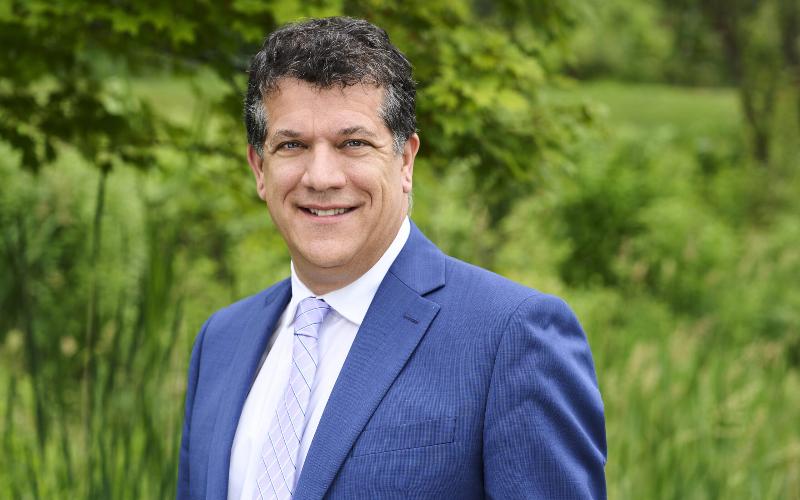New York State Allocates $19.5M to Cornell Lab for Avian Flu Control in Dairy Industry
New York State has allocated $19.5 million to Cornell University to bolster efforts in combating avian flu, despite no confirmed cases in New York's dairy cattle. The funds will expand the Animal Health Diagnostic Center at Cornell University, enhancing its capabilities to address the outbreak.

In March, the Animal Health Diagnostic Center confirmed that a dairy herd in Texas tested positive for the highly pathogenic avian influenza (HPAI). This revelation highlighted the urgency to enhance diagnostic facilities, as the virus, previously thought to be restricted to the poultry industry, has now affected dairy herds.
New York Commissioner of Agriculture Richard Ball emphasized the importance of the expansion, stating, "The need to grow this facility and handle all the needs with HPAI and other challenges was apparent."
Although New York has not reported any positive cases of HPAI in dairy cattle, the virus has affected herds in 13 other states, raising concerns about its spread. Lactating dairy animals moving between states are required to be tested for HPAI, and New York is prioritizing biosecurity measures to mitigate risks.
Pasteurization of milk is critical for eliminating the virus, ensuring a safe milk supply. "We have tested extensively at both national and state levels, and our milk supply is safe," Ball said.
Diego Diel, director of the virology laboratory at the Animal Health Diagnostic Center, played a key role in identifying the mammal-to-mammal transmission of HPAI after analyzing milk samples from Texas farms. Initial tests targeting common respiratory pathogens in cattle returned negative results, leading to next-generation sequencing that detected avian influenza sequences.
While the exact transmission method from cow to cow remains uncertain, Diel suspects aerosol transmission during milking or mechanical transmission via milking equipment. Infected cows can contaminate the milking machine, potentially spreading the virus to other cows and causing a drop in milk production. There have been no confirmed cases among beef cattle, which might be less susceptible due to the virus's preference for mammary glands.
New York mandates that lactating dairy cattle attending county and state fairs test negative for HPAI within seven days, with many tests conducted at the Animal Health Diagnostic Center. Similar regulations apply to poultry attending fairs, as HPAI poses a life-threatening risk to birds, necessitating depopulation in case of infection.
Commissioner Ball stressed the importance of these measures, stating, "Let’s not contribute to making something worse. It’s a totally understandable policy, and several states have adopted the same approach."
New York Commissioner of Agriculture Richard Ball emphasized the importance of the expansion, stating, "The need to grow this facility and handle all the needs with HPAI and other challenges was apparent."
Although New York has not reported any positive cases of HPAI in dairy cattle, the virus has affected herds in 13 other states, raising concerns about its spread. Lactating dairy animals moving between states are required to be tested for HPAI, and New York is prioritizing biosecurity measures to mitigate risks.
Pasteurization of milk is critical for eliminating the virus, ensuring a safe milk supply. "We have tested extensively at both national and state levels, and our milk supply is safe," Ball said.
Diego Diel, director of the virology laboratory at the Animal Health Diagnostic Center, played a key role in identifying the mammal-to-mammal transmission of HPAI after analyzing milk samples from Texas farms. Initial tests targeting common respiratory pathogens in cattle returned negative results, leading to next-generation sequencing that detected avian influenza sequences.
While the exact transmission method from cow to cow remains uncertain, Diel suspects aerosol transmission during milking or mechanical transmission via milking equipment. Infected cows can contaminate the milking machine, potentially spreading the virus to other cows and causing a drop in milk production. There have been no confirmed cases among beef cattle, which might be less susceptible due to the virus's preference for mammary glands.
New York mandates that lactating dairy cattle attending county and state fairs test negative for HPAI within seven days, with many tests conducted at the Animal Health Diagnostic Center. Similar regulations apply to poultry attending fairs, as HPAI poses a life-threatening risk to birds, necessitating depopulation in case of infection.
Commissioner Ball stressed the importance of these measures, stating, "Let’s not contribute to making something worse. It’s a totally understandable policy, and several states have adopted the same approach."
Key News of the Week











